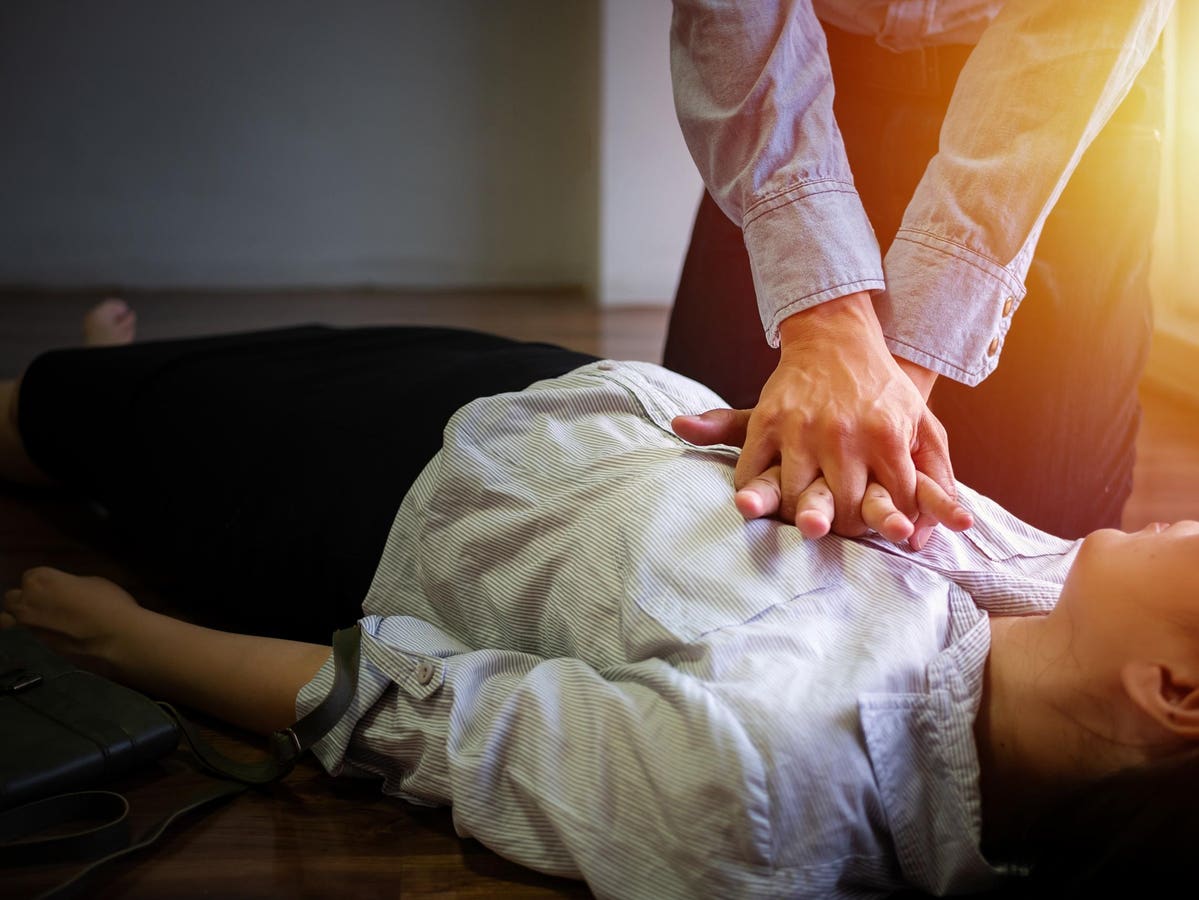A third of U.K. adults are are afraid to perform life-saving cardio-pulmonary resucitation on women because they’re nervous about touching breasts, a first aid charity has found.
A third of men said they didn’t want to be accused of ‘inappropriate touching’, while nearly half (46%) said they’d be afraid of removing a woman’s bra to properly place a defibrillator.
A smaller but still sizeable proportion of women were nervous about touching other women’s breasts inappropriately, according to a St John Ambulance survey of 1,000 U.K. adults.
Nearly a quarter of respondents said they were less likely to perform CPR on a woman in public than on a man.
It’s well-known that bystanders are less likely to give CPR or use defibrillators on women if they experience a cardiac emergency in public.
Between 2005 and 2015, just 61% of women who had a cardiac arrest in public recieved CPR in the U.S. and Canada, compared to 68% of men, a study of 39,000 out-of-hospital cardiac emergencies found last year.
Hesistation costs lives, with these interventions more than doubling the chance of surviving a cardiac arrest, according to the British Heart Foundation.
Nervousness around inappropriate touching isn’t the only factor at play, with heart conditions generally poorly recognized in women.
But the new survey bears out a fear CPR trainees often express, said paramedic and St John Ambulance head of clinical delivery James McNulty.
“We have come across this barrier anecdotally on a regular basis in our training sessions,” he told me. “But St John’s latest research really brought home that this is a problem.”
Every extra moment of hesitation can affect the outcome of a cardiac emergency. But the majority of survey respondents (64%) did say they’d feel more comfortable giving CPR to women if they had the right support and training.
If a defibrillator is used within the first three minutes of a cardiac arrest, it can improve the chance of survival by 70%, according to research from the Resuscitation Council UK and BHF.
“An ambulance or trained health professional may not arrive within that time frame,” so it’s “critical” for members of the public to know how to give CPR and use a defibrillator.
Bystanders can have a “massive” impact, McNulty said. “It is so often the difference between life and death.”
St John Ambulance, which provides free first aid training, hosts free resources including short videos on performing CPR and using defibrillators on people with breasts.
The charity has also launched a campaign — featuring specially designed ‘CPR bras’ — to reassure members of the public that they should provide help as a bystander, no matter a person’s gender.
Chelsea Football Club Women’s Captain Millie Bright, who is involved in the campaign, said “it was terrifying” to witness someone experience a suspected cardiac arrest during a soccer game.
“To learn that as a woman I am more at risk because people are uncomfortable to provide help due to my gender is shocking,” she added in a statement.
“It’s so important that we all take the time to learn how to save a life, as we never know when we might need the help of strangers.”
Read the full article here




